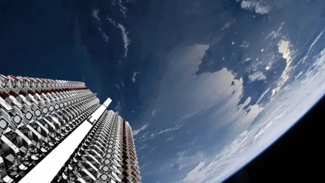Astronomers have urged a halt to the formation of mega-constellations of satellites.

Researchers have urged the Federal Communications Commission (FCC) of the United States, which grants permits for satellite deployment in the country, to halt the launches of megaconstellations like SpaceX's Starlink and to conduct a thorough assessment of their potential environmental impact before issuing any permits.
American government agencies are required to adhere to the National Environmental Policy Act (NEPA), which mandates the consideration of environmental impacts when making decisions. However, a categorical exemption from 1986 means that satellites are exempt from this requirement. Consequently, astronomers insist that this exemption should be revisited, as at the time the law was ratified, there were only a few hundred satellites in low Earth orbit. Today, that number has increased to nearly 10,000, with a tenfold increase expected in the next decade.
Astronomers believe that satellites, even those invisible to the naked eye, can interfere with astronomical observations that are crucial for detecting asteroids and studying space.
The American non-profit organization Public Interest Research Group (PIRG) has outlined the potential dangers of mass satellite destruction. According to PIRG's estimates, when the deployment of megaconstellations reaches its peak, approximately 29 tons of metallic waste will evaporate into Earth's atmosphere daily, equivalent to "a car falling from space" every hour.
Satellites are primarily made of aluminum, which forms aluminum oxide upon combustion. Aluminum oxide, or alumina, contributes to the thinning of the ozone layer and can alter the atmosphere's ability to absorb heat, thereby affecting Earth's climate. Additionally, the re-entry of satellites results in the formation of nitrogen oxides, which are also known to deplete the ozone layer.